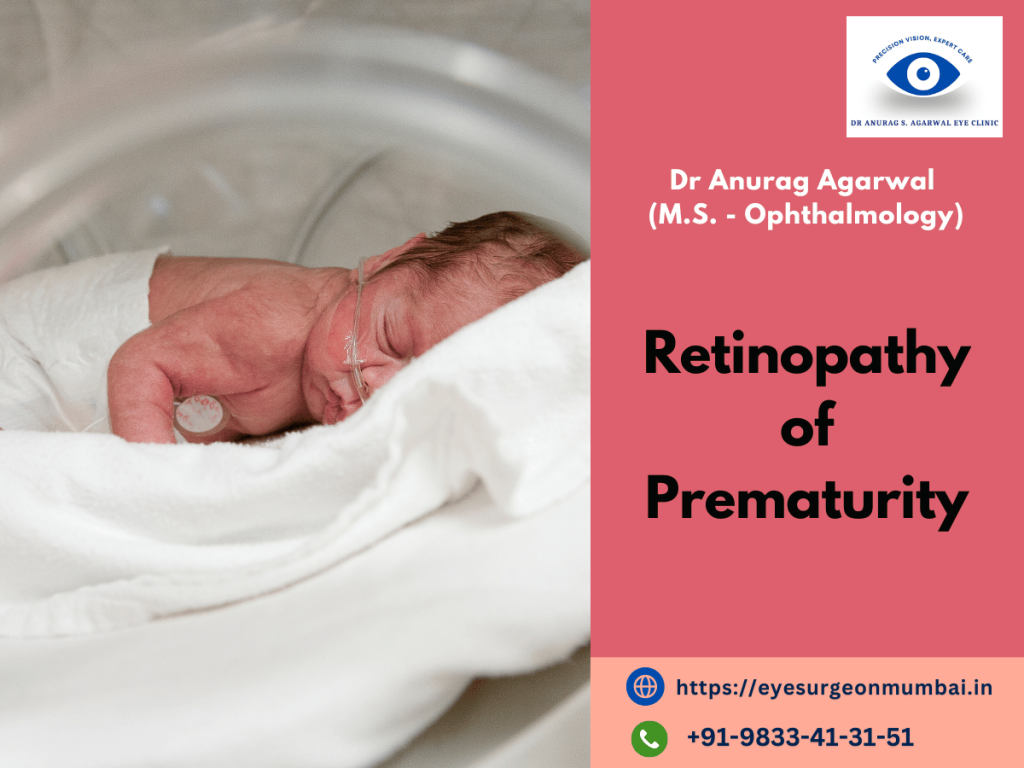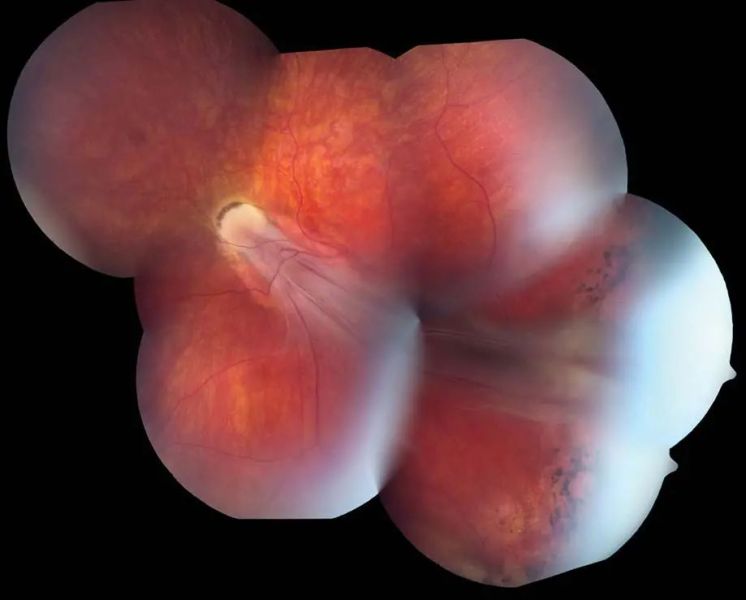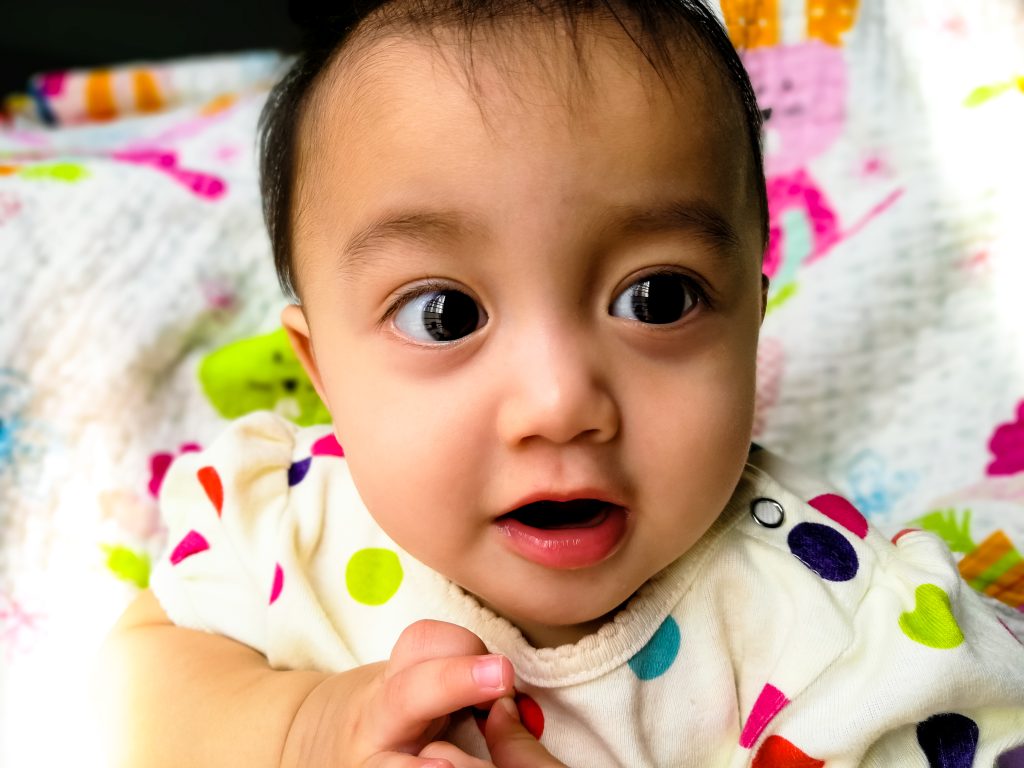© Dr Anurag S. Agarwal Eye Clinic. Privacy Policy
Powered by PRAZONE Web Solutions
As an experienced ophthalmologist practicing for over 22 years in Mumbai, we sometimes encounter patients with Retinopathy of prematurity issues.
In this blog post, we aim to provide comprehensive information about Retinopathy of Prematurity treatment, its causes, symptoms, and diagnostic procedures.

Retinopathy of prematurity is an eye condition that primarily affects premature babies, born before 31 weeks of gestation or with a birth weight below 2.75 pounds (1.25 kg). ROP occurs when abnormal blood vessels develop in the retina, the light-sensitive tissue at the back of the eye, potentially leading to scarring and detachment, which can cause vision impairment or blindness if left untreated.
The primary risk factors for developing retinopathy of prematurity include:
Other medical conditions associated with prematurity, such as respiratory distress syndrome, anaemia, and infections, may also increase the risk of developing ROP.
In the early stages of ROP, there may be no noticeable symptoms. However, as the condition progresses, parents or caregivers may observe the following signs:
Vision problems, such as difficulty focusing or poor visual tracking

To diagnose ROP, we perform a comprehensive eye examination on premature infants, typically starting a few weeks after birth. The examination includes:
Regular follow-up examinations are conducted to monitor the progression of ROP and determine the appropriate treatment, if necessary.
The treatment approach for ROP depends on the stage and severity of the condition:
Early detection and prompt treatment are crucial in preventing vision loss or blindness associated with ROP.

While ROP cannot be entirely prevented, the risk can be reduced by providing appropriate prenatal care, managing premature births, and closely monitoring oxygen levels in premature infants.
ROP typically develops between 4 and 12 weeks after birth, with the peak risk occurring around 6 to 8 weeks.
Yes, ROP can affect one or both eyes, and treatment, if required, is administered to each affected eye individually.
In some cases, ROP may recur or progress even after initial treatment. Regular follow-up examinations are essential to monitor for any recurrence or progression and provide additional treatment if necessary.
If your baby was born prematurely, it is crucial to schedule regular eye examinations with our team of experienced ophthalmologists to detect and manage any potential risk of retinopathy of prematurity. Early diagnosis and appropriate treatment can help preserve your child’s vision and prevent long-term complications. Contact us today to schedule an appointment and ensure the best possible eye care for your premature infant. Dr. Anurag Agarwal, a senior ophthalmologist in Mumbai with over 22 years of experience, specialises in the diagnosis and treatment of genetic eye disorders. Schedule an appointment today on call!
Contact Senior Eye Surgeon in Mumbai – Dr Anurag S. Agarwal. Dr Anurag Agarwal is available at 4 Hospitals in Mumbai Suburban.
Book an Appointment with Dr Anurag S. Agarwal Eye Clinic in Goregaon, Mumbai Suburban today to schedule an evaluation.